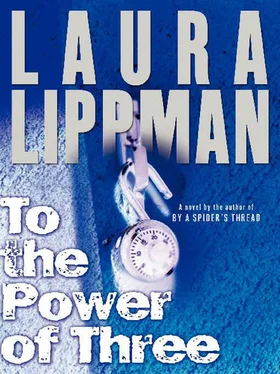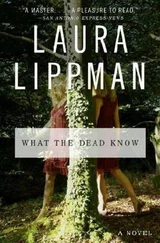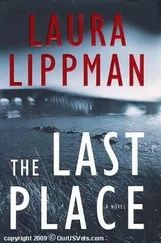“The Patel girl,” Infante said, taking the camera from him. “Only if this was some sort of conspiracy between them, how does Perri Kahn end up near death in Shock Trauma while Josie Patel is hobbling around with an injury that could sideline her scholarship?”
“Some sort of bizarre suicide pact?” But Lenhardt had never heard of two girls, much less three, planning such a thing. A girl and a boy, yes. But two girls with a handgun-very strange.
Infante held the photo out at arm’s length, then shook his head.
“What?”
“She’s got no shape at all. What a waste of underwear.”
Lenhardt considered the way men would start judging his daughter, the way they probably did already, young as she was. He thought of boys in schoolrooms, ranking girls, noticing which ones were developing and which ones weren’t-and punishing them all. He envisioned men watching his daughter walk down the street in a few years, reducing her to her parts. He thought of the creeps who got excited looking at little kids, guys who would get off at the sight of Malcolm Delacorte, the monster baby, taking a bath. The night had a thousand eyes, as the old song had it. Somewhere-at church, on an athletic field, in a shopping mall-his daughter had already been assessed by someone. Assessed and found wanting.
Or, worse yet, found desirable.
“You’re such an asshole, Infante.”
In the thirty-five yearssince Thornton Hartigan had first fixed his gaze on the farms and undeveloped acres that would become Glendale, civilization had marched toward the area just as he had prophesied. Roads were wider and smoother. Several large grocery chains now vied for customers, and there were two Starbucks. The nearest mall, after a flirtation with bankruptcy, was retooling itself as an upscale shopping destination. Just adjacent there was a multiplex with stadium seating and enough screens to allow the occasional art film to lose money.
But decent restaurants continued to elude this part of the valley. The usual suspects-the fried-cheese franchises, as Dale thought of them-were represented. But the only high-end places were old-fashioned relics, throwbacks to a day when people took Sunday drives in order to stuff themselves on crab imperial. When Dale had lived here, the lack of good restaurants had not bothered him so much, but after four years in the city, when Baltimore was suddenly enjoying a mild culinary renaissance, he was spoiled. Dale regretted every meal he was forced to consume in Glendale. And given that he had come out every week, sometimes twice a week, for dinner with Kat, he had logged more than his share of time at Applebee’s and Chili’s and Bertucci’s. He knew it was decadent, caring so much about food. An educated palate actually increased one’s ratio of disappointments, for as one grew more sophisticated, fewer meals met one’s expectations. Still, Dale could not bear eating crap.
Which was how he rationalized making Peter Lasko come to meet him in the city for breakfast at the Blue Moon Café in Fells Point, one of Dale’s favorites. The fare was wonderful, old-fashioned comfort food with a twist. But Dale also wanted a meeting on his own turf, a place where the waitresses knew and fussed over him. Three years ago, when he had tracked Peter down at the Glendale pool and taken him out for a sandwich at the local Dairy Queen, he had felt old and pasty, out of place among all those tanned young people. He wasn’t going to make that mistake again.
Yet it was apparent from the moment Peter Lasko sat down that waitresses did not need to know him to pay special attention. Apparently he was that good-looking, although Dale would never be able to see it.
“Nice,” the boy said, glancing around the narrow rowhouse. Man, Dale corrected himself. He was a man now. Technically. Old enough to drink and vote, and more than old enough to go to war, although the Peter Laskos of the world didn’t have to worry about that.
“You can’t get in here on the weekends,” Dale said. “But I think it would lose a lot of its charm if it expanded to a larger space. It has only one flaw.” He lowered his voice. “The coffee’s the usual overscorched brew. That’s why I bring my own, from the Daily Grind.” He tapped his thermal cup. “Technically not allowed. But I’m a favored customer.”
“Outlaw coffee, huh?” Kat had made a similar joke about her father’s fussiness when he brought her here. Shit-Dale again felt the waves of grief, not unlike nausea, except these seemed to get stuck in his throat and stay there. He did not want to break down. Not here, not in front of this boy.
“I hear,” he said, moving to a subject that he knew the boy would like, “that you’ve scored quite a success for yourself, right out of the gate. A major motion picture.”
“Well, it’s a Miramax film. They don’t carry the artistic cred they once did, but it’s still a big deal. Of course, I’m not the star, far from it. But it’s twelve days’ work, and I play the star’s brother.”
He threw out a name that meant nothing to Dale, who nevertheless widened his eyes as if impressed. Dale couldn’t remember the last time he had been to a movie theater, or even watched a film straight through on cable. Who had two hours to sit in one place doing only one thing? That was one of the unexpected sides of Susannah, her devotion to certain programs, and, stranger still, her belief that they connected her to others. Television was church for her generation. She and Kat had bonded over that HBO show Sex and the City, which Dale found appalling. It was porno without the money shots, although the girls incongruously kept their bras on while fucking.
“Will you film around here or in Pennsylvania?”
“ Toronto. More bang for the Canadian buck. Besides, even though it’s called Susquehanna Falls , it’s supposed to be set in some vaguely generic city, like in Miller’s Crossing . We don’t want the audience to know exactly where they are, or even what year it’s set in. The sense of dislocation is key to the experience.”
Dale imagined a director or writer or someone else connected to the movie saying these exact words to the boy, who had absorbed them earnestly and now repeated them on faith. Yes, he was just the kid for the job Dale had in mind.
“So you’ve got the world by the balls and you decided to kill some time in little old Glendale?”
“I had four weeks off. It’s not really enough time to do anything. Besides-” There was that raffish grin again. “The money hasn’t started rolling in yet. My rent in New York is manageable, but it’s an expensive city, just sucks the ducats out of your pocket, so I went ahead and sublet my place. And my mom’s the best cook I know.”
Ducats . Even Dale was pretty sure this was outmoded slang. Kid would probably be talking about “benjamins” in a minute, or drawling a-ight, as if he were some street-corner drug dealer. Dale knew he was being cruel, but such outward pettiness helped keep other, darker feelings at bay. It was easier to feel contempt than think about Kat. Easy yet unnatural, too.
“Do I know your parents? What does your father do?”
“He’s at Procter & Gamble, manages people or something. I’ve always been a little hazy on the details.”
The conversation stalled out, but their food arrived before the awkwardness became too obvious, allowing them to busy themselves with forks and salt shakers. Dale was having one of the Blue Moon’s specialties, the huevos rancheros, and he had assumed that a twenty-two-year-old boy would order something even heavier-the chocolate chip pancakes or Belgian waffles. But Peter was eating an egg-white omelet, no toast, minus the hash browns.
Читать дальше












